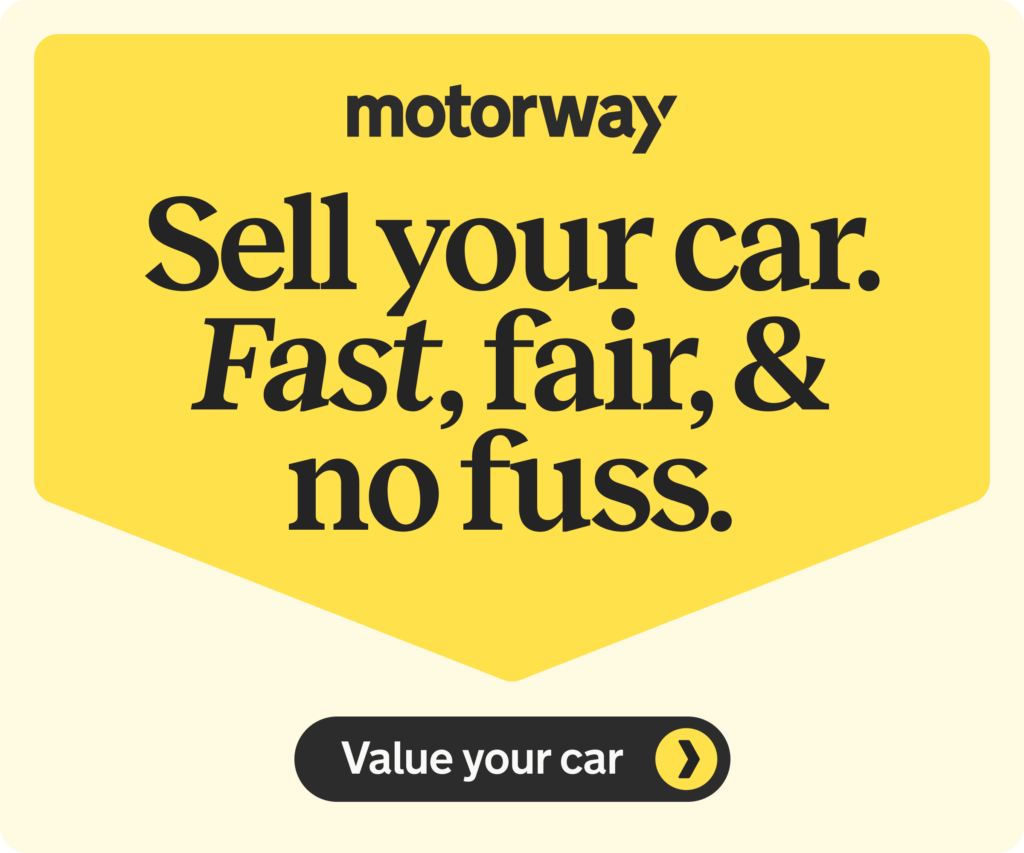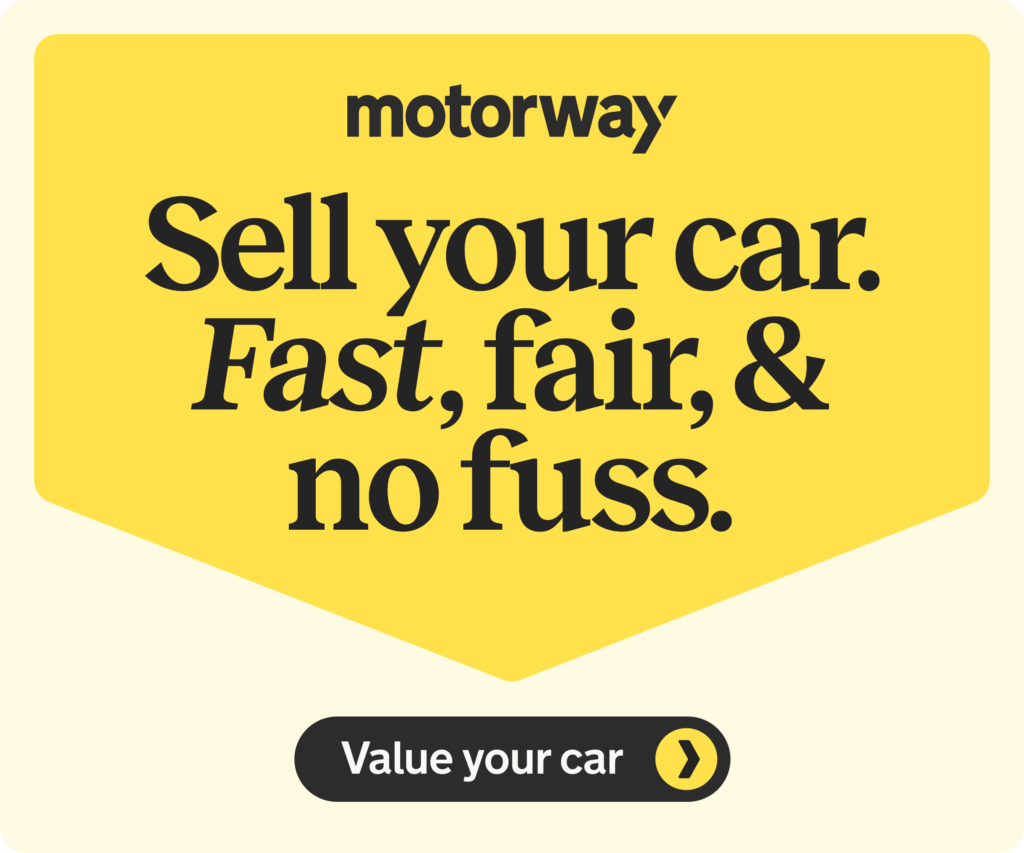You can, without a doubt, get a reasonable price if you sell your car privately. However, and this is a big ‘however’, it does come with its risks. It also usually requires a lot of time and effort and can be a major hassle.
If you’re looking for a stress-free way to sell your car and get a great price, then Motorway is for you! Enjoy a free, instant valuation and have 7,500+ certified dealers compete to buy your vehicle, meaning you’ll get their best price possible.
But if you want to learn more about going private, keep reading to discover how you can make more money from this sale.
Selling a car privately explained
- Why should I sell a car privately?
- Can I legally sell my car?
- Getting ready for a private sale
- How to advertise your car
- The business end of selling your car
- FAQs

Why should I sell my car privately?
As touched upon, there are several pros and cons you must weigh up before selling your car on the private market:
| Pros | Cons |
| Higher price: As you’re not dealing with intermediaries, like car dealers, who take a cut, you take home more money for your vehicle. | Time-consuming: Having your car serviced, advertising it, handling inquiries, arranging viewings, and handing it over to the buyer requires considerable time and effort. |
| Greater control: You can communicate directly with prospective buyers and sell directly to them, giving you more control over the price. | Getting ripped off: You have to organise the payment and hand over the vehicle, which leaves you open to being conned or worse. |
| Flexibility: You can schedule viewings and negotiations around your availability. You don’t work according to an intermediary’s timetable. | Uncertainty: Finding a buyer may take longer than expected, which could delay purchasing your next vehicle. |
Can I legally sell my car?
Before you sell your car, you need to make sure you are legally allowed to.
Yes! You can legally sell your car. But you must make sure that you comply with a few key steps to ensure that it is lawfully able to be sold to a new owner:
- Proof of ownership: You must own or have permission to sell the car. This is proved by having the logbook, also known as the V5C document. Your driving license and proof of purchase also help establish the vehicle is yours.
- MOT status: If the vehicle is over three years old, ensure it has a valid MOT certificate.
- Declare faults: Disclose if your car has had any major faults, like accident damage. This is especially crucial if you are selling an old car.
- Clear outstanding finance: If the car has any, you must pay off the finance left on it.
- Transfer documentation: Complete the V5C (logbook) transfer to the buyer and inform the Driver and Vehicle Licensing Agency (DVLA).
Following these helps ensure a smooth, legal sale and avoids any liabilities or headaches in the future.
Getting ready for a private sale
How to find out how much your vehicle is worth
Having a good idea of your car’s value is essential for a successful private sale. Start by using online car valuation tools, which can give you a baseline price based on your car’s make, model, mileage, and condition.
We recommend that you use Motorway! Get a free, instant valuation that uses current market data so you know what we tell you is the going price for your car.
Compare your valuation with local listings for similar cars to better understand current demand. Taking note of seasonal trends, age, and optional extras also helps ensure you have an accurate value in mind, making setting a fair, competitive price easier.
Preparing your car for sale
Getting your car sale-ready boosts its appeal and value. Here’s how:
- Deep clean: Give the exterior and interior a thorough clean to make it shine. The car’s condition is crucial!
- Repair minor issues: Fix small dents and scratches, as well as any easy repairs.
- Organise paperwork: Keep maintenance records, MOT certificates, and service history handy.
- Take quality photos: Capture your car in good lighting to highlight its best features.
These steps will help you get the best price possible for your vehicle.
What documents do I need to sell my car?
As mentioned, you’ll need to have a few key documents to sell your car privately:
- V5C logbook: Proof of ownership for transferring ownership to the buyer.
- MOT certificate: Especially if the vehicle is over three years old.
- Service history: Shows maintenance records, boosting buyer confidence.
- Finance settlement letter: Only if there’s outstanding finance.
Having these documents helps streamline the sale process and reassures potential buyers of the car’s condition and ownership history.
How to advertise your car

Once you have an understanding of your vehicle’s value, you’ll be motivated to create an advert immediately. However, your car needs to look presentable.
Where to advertise your car for sale
When advertising your car for sale, consider using a variety of methods and locations to ensure the ad targets the right car buyers and gets as many eyeballs as possible!
- Online marketplaces: Sites like Motorway, Auto Trader or eBay Motors offer plenty of exposure.
- Social media: Platforms like Facebook Marketplace can attract local people searching for a car.
- Specialist car forums: Online sites that cater to different car fans are effective for targeting enthusiasts of specific car models.
- Local newspapers: Advertising in your local newspapers is a great way to reach potential buyers, as they will be scouring the classified ads for bargains.
- For Sale signs: Display signs in your car window if you’re often parked on the street or in other areas where the car will be seen.
How to create the perfect advert for your car
To create a car advert that gets results, include key details like the car’s mileage, make, model, and year while highlighting standout features. Clear photos from both inside and outside angles are essential to capture attention.
Write an honest description that clearly outlines the car’s condition (be truthful about this!), and emphasise selling points such as fuel economy, service history, or recent maintenance. Lastly, a realistic price that reflects market trends will ensure competitiveness.
A well-rounded advert will give potential buyers the necessary information, making a solid first impression. This will help your car quickly sell!
The business end of selling your car
How to negotiate with a potential buyer
To negotiate with a potential buyer, here are some steps to follow for a smooth negotiation and best outcome:
1. Begin with a realistic price and know your lowest acceptable offer.
2. Stay polite and open to questions about the car’s history, addressing any concerns honestly.
3. If the buyer offers a low figure, calmly counter with a fair middle-ground price. Highlight the car’s strengths, like recent maintenance or added features, but avoid hard selling.
4. Listen to the buyer’s perspective. Flexibility helps reach a satisfying agreement.
5. Ending the conversation with gratitude can leave a positive impression, even if the buyer doesn’t accept the final price.
How to get paid securely
A bank transfer is the best payment method when selling your car privately, as it’s usually fast, reliable and secure. Always verify that funds have cleared in your account before handing over the keys. Meeting at the buyer’s bank branch for the transaction can add security and peace of mind.
Avoid payments through cheques, as they can take time to clear, and cash payments, which carry risk. Another option is using a reputable third-party service, though these often come with fees.
Securing your payment protects both you and the buyer in a private sale.
What to do when you’ve sold your car?
Once you’ve sold your car, a few key steps remain:
- First, inform the DVLA to transfer ownership—this can be done online or by mailing the V5C logbook.
- Next, cancel your car insurance or transfer it to a new vehicle. Be sure to save a copy of the bill of sale or any proof of payment.
- Finally, remove personal data from the car’s infotainment system if it has one.
These steps ensure a smooth and legally compliant transition after a private car sale and help prevent problems down the road.
FAQs
Should I meet potential buyers at home?
Meeting buyers at home can be convenient but consider safety first. If possible, meet in a well-lit, public area instead. If you meet them at home, ensure you have someone with you and secure any valuables.
How do I avoid getting ripped off?
Research your car’s market value and set a fair price to avoid being underpaid. Meet buyers in safe, public locations, and don’t rush into accepting offers. Verify payment methods carefully and ensure all funds clear in your account before transferring ownership.

Is it time to sell your car?
Want to learn more about owning, maintaining, and selling your car?Check out more of our guides here, covering everything from finding buyers, to negotiating a good price, and completing payment safely.
- Selling your car
- Who will buy your car?
- How much is my car actually worth?
- Tips to sell your car today
- Find your best car buyer
- What documents do I need to sell my car?
- Cash for cars
- Sell your van
- Sell your car for parts
- Selling a car with finance
- Selling a car to a dealer
- Selling your car during the coronavirus pandemic
